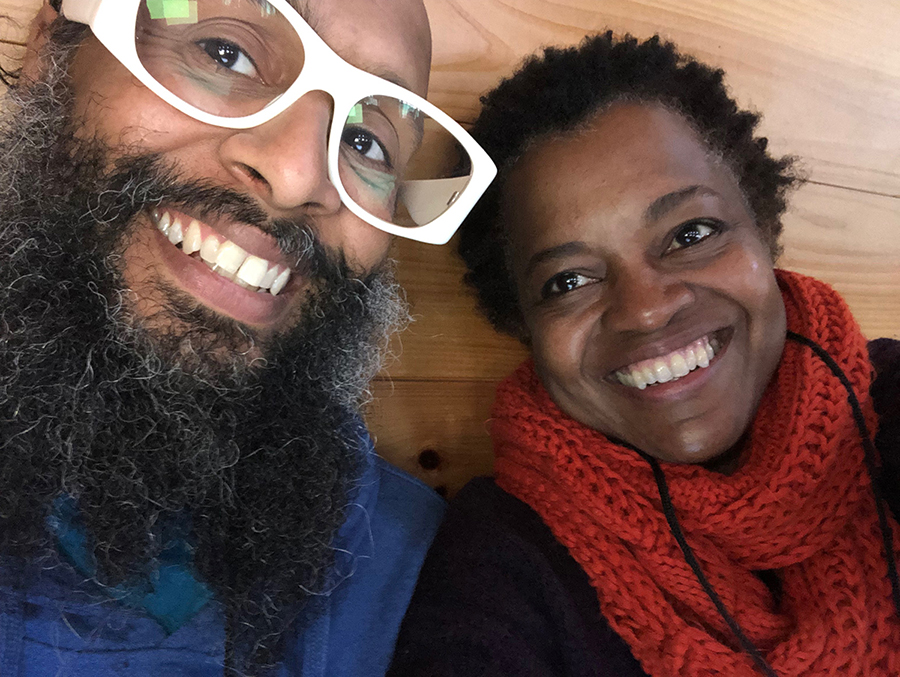I attended “Design a Cooperative Business,” one of the sessions on Saturday 5/14. There were 4 presenters, including Hélène Lesterlin of the Good Work Institute, which is itself a form of cooperative, called a worker self-directed nonprofit. She is also co-founder of CO, a cooperatively-owned and -managed co-working space in Rhinebeck. The others were Shawn Berry of Lift Economy, Johan Matthews of Mutual Design and Cooperative Fund of the Northeast, and Angela DeFelice of Co-op Hudson Valley.
We started by learning what cooperative businesses (“co-ops”) are. The inspiration for forming a co-op is to solve a problem and/or meet an unmet need in the community. We got a quick overview of thevarious types of co-ops:
- There are producer co-ops, where a group comes together to meet a shared need, such as buying supplies at a cheaper price.
- Consumer co-ops are those owned by the customers – the company REI is one well-known example.
- With worker co-ops, the business is owned and managed by the workers – Earth Designs Cooperative is a local example.
- Platform co-ops are digital platforms — a website or mobile app that is designed to provide a service or sell a product — that are collectively owned and governed by the people who depend on and participate in it. The Driver’s Co-op in NYC is an example (competing with Uber).
- In a housing co-op, the residents of the property are the owners of the property.
- There are also hybrid co-ops, which can combine more than one type. The coming Kingston Food Co-op is intended to be a hybrid, with both consumers and workers owning the business. CO is another example of a multi-stakeholder co-op.
There was a short Q&A following the presentation. Someone asked about the benefits of being a worker-owner. It was agreed that this is a personal choice, one that gives more freedom and more choice, but also more responsibility. There was a question about the relationship between Co-ops and Community Organizing. Johan compared the structure of co-ops to those of traditional non-profits and corporate businesses. He argued that both of these entities incorporate “disconnection by design” in their structures, where there is a large separation between those in power and the workers/people served. It was suggested that Community Organizing is “soil in which cooperative businesses grow.” Ultimately, being part of co-op involves a big shift in how one sees themselves and their relationship to goods and services.
Since co-ops result from identifying an unmet need, we next brainstormed unmet needs in our community. We came up with a list and then self-selected into 4 groups to create hypothetical co-ops.
My group worked on creating a co-op to address a need within the broad topic of education. The other topics were housing, interclass relationships, and loneliness. Myself, the three other group members, and our facilitator Angela, brainstormed some possible co-ops that could contribute solutions in the education realm. We came up with the idea of an accessible after-school program. Someone pointed out that these programs don’t work for the most at-risk students because often they need to work after school. We decided that we would create a program to address another need we see in the community – training youth to become experts in conflict resolution – and then provide them with paid opportunities to use these skills. It was really fun to think about the impact such a program could have! There were many, many details to work out in the course of the 25 minutes we had, but it gave us a sense of all the planning it takes to get a co-op off the ground.
We came back together and heard everyone’s ideas. It’s amazing what can happen in a short time when creative, inspired people get together!
My big takeaway from the workshop was that my ideas about what a business is, with one owner who presides over their employees, is not the only possibility, and many structures exist that give more power to people to have a say and a stake in not only their own jobs, but their community.
There are abundant resources available to anyone interested in starting a co-op here in the Hudson Valley!
Stephanie Ellis is the mom of 2 teenagers and the owner/operator of Creekside Acupuncture in Rosendale, NY. She has lived in Rosendale for 26 years. She supports the work of GWI because working on Just Transition is the key to the health and wellbeing of our community.


